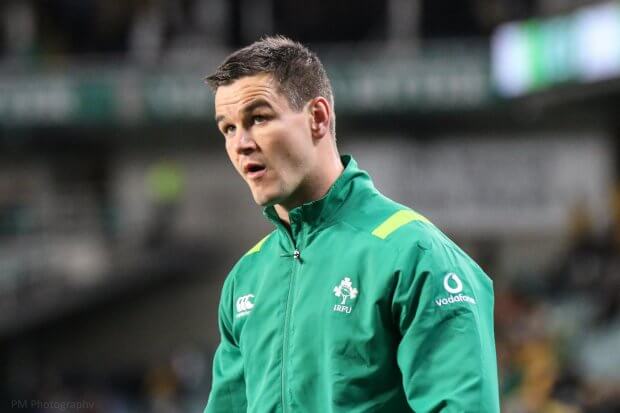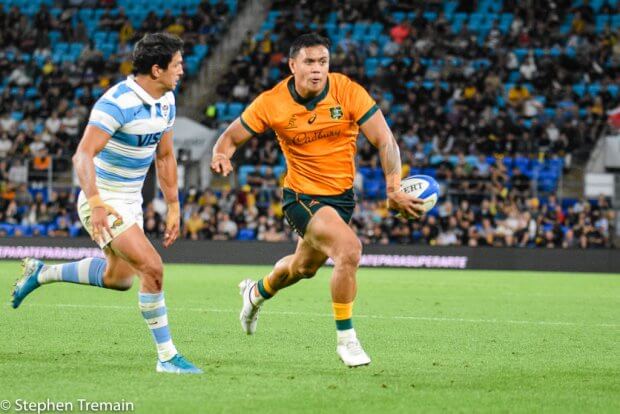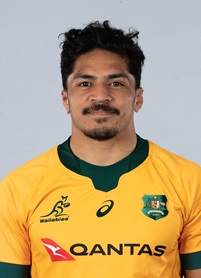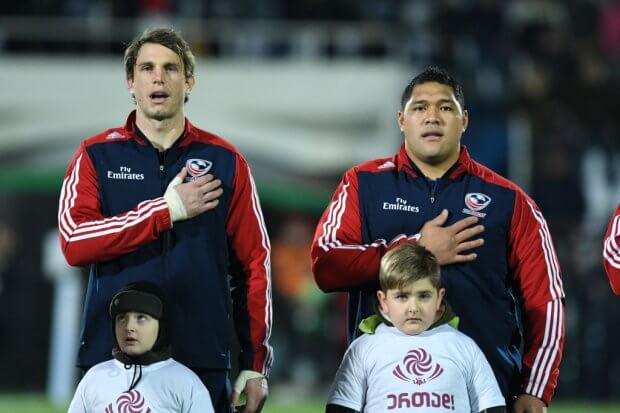By Newtta – thanks for the news, chum!

SEXTON BANNED FOR REF ABUSE
Johnny Sexton will be free to captain Ireland in the Rugby World Cup after receiving a three game ban for misconduct announced by European rugby chiefs on Sunday. But the 38 year old flyhalf will miss next month’s warm-up matches against Italy, England and Samoa, despite “exchanging words with referee Jaco Peyper” after the Champions Cup final nearly two months ago.
Fortunately for the rugby world, Rugby Onslaught sources within the hearing have been able to leak part of his interrogation, and it does not bode well for Ireland. Read the transcript here:
Lawyer: Johnny Sexton, did you abuse the referee after the Champions Cup final?!
Judge: You don’t have to answer that question.
Sexton: I’ll answer the question. You want answers?
Lawyer: I think I’m entitled!
Sexton: You want answers?!
Lawyer: I want the truth!
Sexton: You can’t handle the truth! Son, we live in a world that has rugby, and those rugby matches have to be refereed by men with whistles. Who’s gonna hold them to account? Damian McKenzie? Marcus Smith? I have a greater responsibility than you can possibly fathom. You weep for Jaco Peyper and you curse Dan Biggar, Owen Farrell and me. You have that luxury. You have the luxury of not knowing what I know, that my abuse, while outrageous and unacceptable, probably stops France entering every ruck at the side at the World Cup, or prevents the All Blacks from being three metres offside at every ruck. And my despicable treatment of referees every match, while grotesque and incomprehensible to you, is the only thing stopping Rassie Erasmus whinging his way to another World Cup like he did in the Lions series! You don’t want the truth, because deep down in places you don’t talk about at parties, you wanted me to abuse the referee. You needed me to abuse the referee. We use words like “side entry”, “advantage over”, “not driving straight at the scrum”. We use these words as the backbone of the laws of rugby. You use them as a punchline. I have neither the time nor the inclination to explain myself to a man who rises and sleeps under the blanket of the very rugby that I provide, and then questions the manner in which I provide it! I would rather you just said “thank you”, and went on your way. Otherwise, I suggest you pick up a whistle and start refereeing. Either way, I don’t give a damn what you think you are entitled to!
Lawyer: Did you abuse the referee?
Sexton: I did the job that—-
Lawyer: Did you abuse the referee?!!
Sexton: YOU’RE GODDAMN RIGHT I DID!!

Lots of Speculation on Len Ikitau’s Replacement after his Spatula, or Specula, or something like that was broken.
Planet Rugby isn’t sure who the replacement should be with Izaia Perese, Reece Hodge, Samu Kerevi, Joey Walton, and Josh Flook listed. AAP / Rugby.com.au reports Samu Kerevi bagses not him with Izaia Perese and Lalakai Foketi mentioned. Who do you think the Wobs will turn to?

Rugby Pass has named a team made of new Top 14 recruits just for fun
RugbyPass has named their ‘new entrants’ 23 for the new season starting soon. This includes Sam Whitelock, Pete Samu, Siya Kolisi, and 20 others of lesser standing, but still pretty handy, and then they name 4 more to make it 27 in the 23.

Choosday Choo – “All Blacks kill American Rugby”, or is Status the thing?
Many rugby fans have heard of the USA Olympic gold medals in rugby in 1920 and 1924, but the back story appearing in the Stanford magazine: this article is quite interesting.
American football in the early years of the twentieth century was dangerous. Deaths sometime exceeded 10 per year. Luckily for us Thomas Edison sometimes liked to point his camera at American football so that posterity can see what the game looked like back then – players mostly bashing into each other ending up in a pile on the ground, play after play.
After deaths in California in 1905, most universities in the Bay Area decided to ban American football, and so the student body turned to rugby as their premier sport for the 1906 season.
“It was rugby or nothing,” A.J. Chalmers, who’d captained Stanford’s football team the previous fall, said in an interview at the time. “I know there is a general sentiment among the football men at Stanford against rugby, and I heartily concur with that sentiment . . . but when it comes to a choice of rugby or nothing, I will support the English game.”
West Coast universities established rugby teams as their primary sports teams, but there was a lack of competition.
Outside of California and Nevada, however, no other American schools considered rugby a serious solution to football’s problems. Still, there were California’s “natural neighbors” on the Pacific to play. In May 1910, a combined All-American team of Stanford, Cal and Nevada players undertook a three-month, 15,000 mile tour of Australia and New Zealand, “the longest ever taken by a college athletic team,” the Stanford Quad boasted.
A harsh reality check wasn’t long in coming. In 1913, the New Zealand national team — the feared All Blacks — scheduled games all over California and Canada and didn’t find much to worry about. “You don’t know how to play the game,” one All Black told reporters the day before his team faced Stanford for the first of two games.
If the Stanford players were aware of the disrespect, they didn’t do anything to quell it, losing by a combined score of 110–0. Any comfort in the result had to be found in the All Blacks’ domination over all other competition as well. The Kiwis played 16 games against American and Canadian opposition, outscoring opponents 610–6.
The sting of defeat was perhaps lessened by the fact that the All Blacks were the class of world rugby, but the crushing losses hardly helped the game’s status. One journalist dubbed the trip the “tour that killed American rugby.”
By 1914, American Football had cleaned up its act after several more years of high death tolls, and:
Football made a person “feel a bit proud to know that he is an American playing an American game the same as other great American universities.”
Stanford and a few other universities continued with rugby until 1918, but then after WW1 American football again became the premier sport of all universities.
In the 12 seasons of rugby however, a body of elite players had been developed. When the Olympics of 1920 came around and rugby was one of the sports, they decided to try their luck. The USA team was entirely made up of alumni from the universities in which rugby was the premier sport in the preceding years. And they beat France, and then in 1924 came back for another try.
The 1924 victory in Paris was most astounding. The Americans — about half of whom were Stanford alums — had hardly played since the previous Olympics. And France had the support of 40,000 fans eager for revenge.
The Bay Area had a population of around 1 million in 1910, but with rugby as the premier football code for that population, it could, after a decade of development, produce a team competitive with more traditional rugby nations. France back then was not the France of today. They had played in the Five Nations competition for some years, but 1920 was the first year they had a win. They were perhaps the sixth or seventh best national team in the world, but then it would be fair to rank the USA as one of the five or six above them.
Since that time, for many decades, the USA has had many more players than there were in California in the pre-WW1 years, but never has any other part of the USA viewed or treated rugby as the premier football code, and never has the USA been as good compared to the rest of the world.
There are numerous examples of teams from small player bases consistently matching or outperforming teams drawn from larger player bases. But in most of these cases it is difficult to tell if the status leads to the success or the success leads to the status. In the case of prewar California, the status of rugby was instantly elevated to the top, and then 10-12 years later something like the previous situation resumed.
What does the status do to the player base? I’d think that the physical overlap between those who succeed in rugby and those who succeed in American football would be small due to the physical differences of the sports, so it’s not a matter of redirecting the sporting talent to one sport or the other. Does the status draw people from other pursuits, who would otherwise not be playing a sport at all or not seriously, or motivate people to do super well at something they are naturally quite good at? Does a county need at least a subgroup that glorifies a sport before the country can excel at it?


